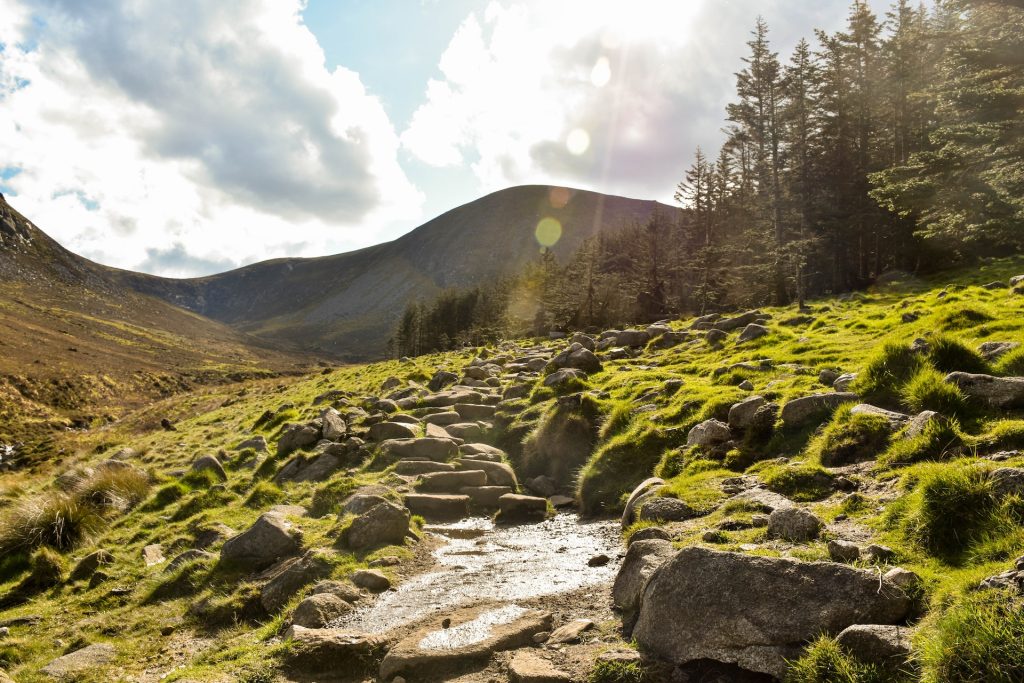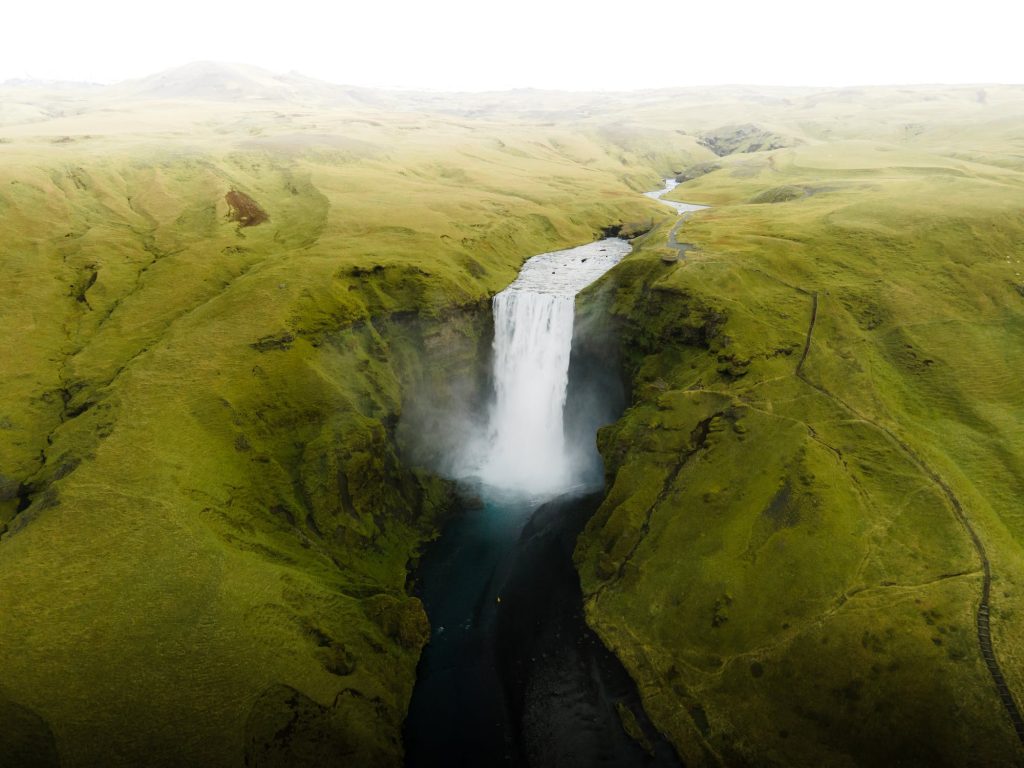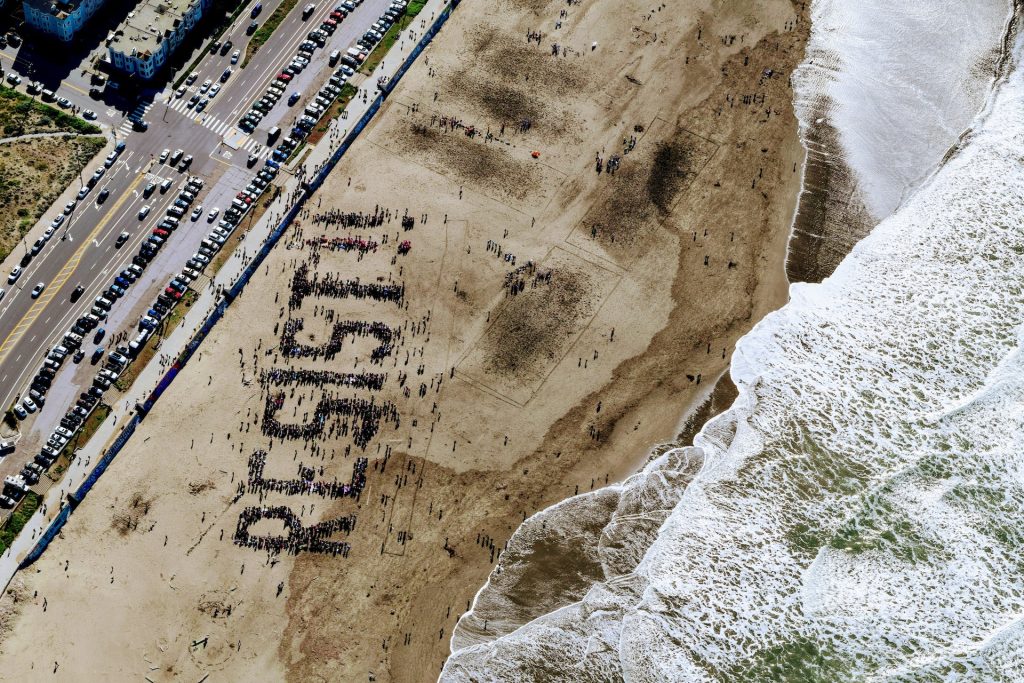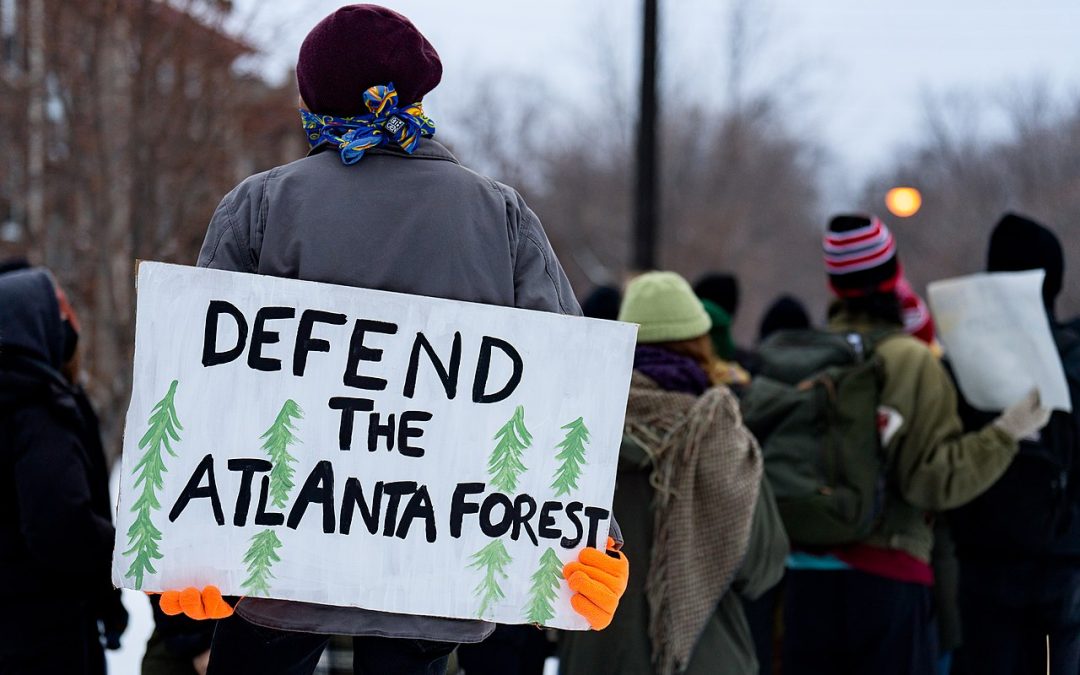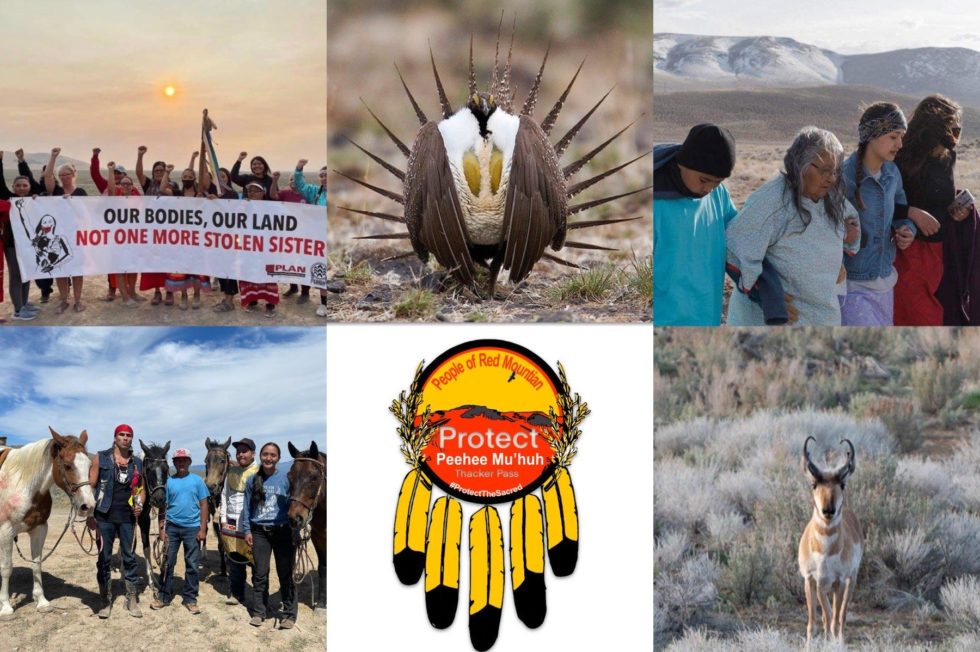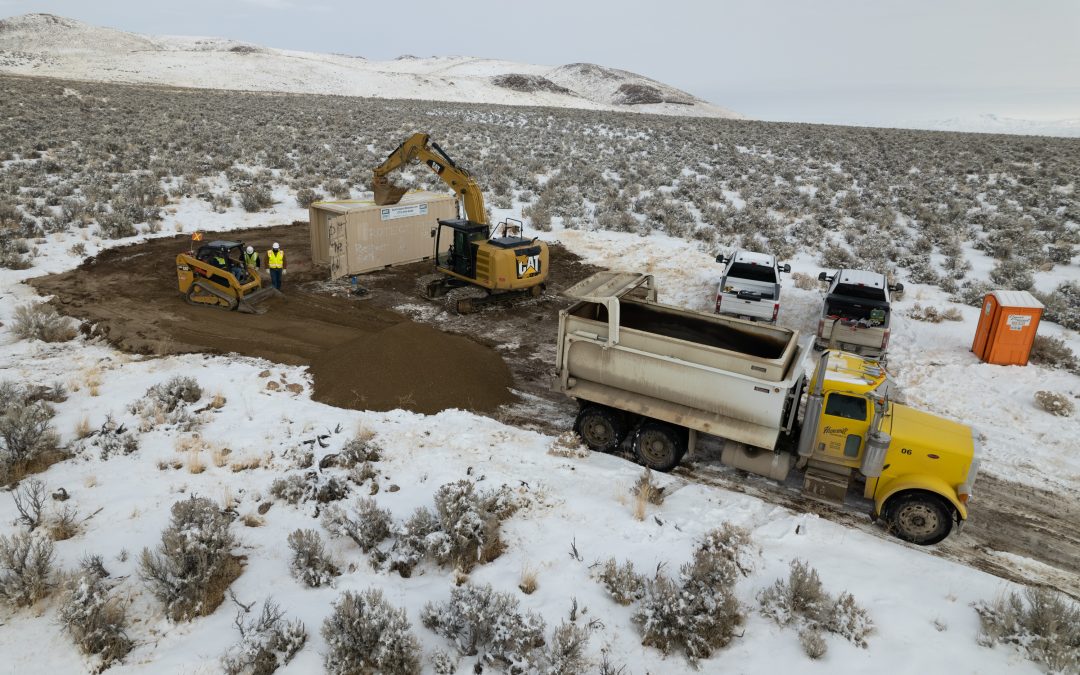In September 2021, the Atlanta City Council passed legislation to build a $90 million police training facility, despite overwhelming opposition from the Atlanta community. The compound would include a mock city complete with houses, a school, a gas station, a bank, and a community centre; it would also feature a Black Hawk landing pad, shooting ranges, and a bomb testing site.
At 85 acres, it would be the largest police training facility in the United States. If constructed, it will be a rehearsal space for cops from all over the country and the world to practice urban warfighting with the latest military technologies.
Cop City—euphemistically and offensively called a “Public Safety Training Center” by its proponents—carries within it a confluence of catastrophes, including police brutality, militarism, racism, environmental damage, gentrification, and corporate profiteering.
Police militarisation
Police forces in the United States have always been militarised. There is a perpetual pipeline between the US military and police forces in terms of equipment and personnel. But more than that, both institutions seek domination and control over populations that are not part of, or act in opposition to, the political and economic elite.
The US police, which began as “slave patrols” to capture enslaved Black people escaping plantations, have white supremacy and capitalist interests embedded in their function. Regardless of diversity, training, or other reforms, the police seek to cage or control those perceived as a threat to the country’s racialised, capitalist order. The US military, meanwhile, asserts itself as a global police force to enforce this same order abroad. Its pursuit of a “national security state” and “full spectrum dominance” guide its actions in seeking to dominate the world.
The US military already trains militarised forces globally. Its infamous School of the Americas is one example, and its but the US military runs training operations for police and soldiers around the world. US police also already participate in military trainings, including with the Israel Defense Forces. As an organizer with Jewish Voice for Peace notes, “The exchanges refine and enhance the militarization rooted in American policing with Israeli tactics and technology of occupation and apartheid that are being tested on Palestinians on a daily basis.”
Cop City would be part of this cycle of exporting and importing violence in preparation for suppression of dissent as the world burns. The creation of this kind of compound is an escalation in the violence against those who are marginalised by the state, as well as an attack on the planet’s well-being.
Environmental impacts
In addition to the extreme carbon footprint of US militarism, Cop City would actively destroy wetlands and forest. Its construction would result in bulldozing a large part of the Weelaunee Forest, otherwise known as the South River Forest. This land is essential for environmental well-being, especially as the climate crisis worsens.
Stop Cop City forest defenders explain, “The wetlands within the forest help to mitigate the risk of dangerous flooding, and provide breeding grounds for amphibians and migration sites for wading birds…. Over 150 species call the Weelaunee Forest home, including river otters and white-tailed deer and Carolina wrens and salamanders.”
Furthermore, “The extensive tree canopy keeps the surrounding areas cooler (something hugely important as the risk of fatal heatwaves grows with each passing year), captures and stores carbon dioxide from the air, and acts as a natural filter that mitigates air pollution.” The forest’s canopy is already diminishing. Cop City would raze many acres more.
Racial injustice
In addition to the environmental destruction, Cop City also imposes further racialised violence upon land that has seen more than its share of pain.
The proposed site for Cop City is in a majority Black area of DeKalb County, on land that was once stolen from Muscogee-Creek people, that was then used as a plantation during slavery, and then as a prison form where incarcerated, mostly Black, people were forced to work on projects for the city of Atlanta.
Building a massive police facility where police will be trained to use military equipment and urban warfighting techniques in a predominantly Black area is a nightmare for residents, especially in the midst of relentless police brutality against Black and other communities of colour across the United States.
Corporate interests
But part of the interest in the site for this project is likely precisely because it is in a predominantly Black neighbourhood. The construction of projects like this are often tied to gentrification. As Atlanta has been tapped to host games in the 2026 World Cup and is seeking to host the 2024 Democratic National Convention, being able to offer the “security” afforded by a heavily-militarised police force is meant as a selling point.
Cop City has significant backing from the Atlanta Police Foundation, which is a private-public partnership and a major player in local politics. The Nation reports, “Its executive board is a veritable who’s who of corporate power and inherited wealth. Last year, the foundation expended large sums of its donors’ money lobbying for police expansion.”
The Foundation has leveraged its corporate backers—from Delta Airlines to the Waffle House—to raise two-thirds of the costs of constructing Cop City. The other third will be paid for by taxpayers. The Foundation has also relied upon the captured local media to manufacture consent for the project. The Atlanta Journal-Constitution, the city’s so-called paper of record, is owned by Cox Enterprises. The CEO of Cox Enterprises is Alex Taylor, who is leading the fundraising drive for Cop City. Thus, the paper of record has only ever recorded the support for Cop City from corporate elites.
Organising to Stop Cop City
Organisers in Atlanta have opposed Cop City since the beginning. They signed petitions, engaged in protest, and contributed 17 hours’ worth of commentary to public hearings at City Hall. After the plans for Cop City were approved, an even broader movement formed to defend the forest against destruction. Some have taken up residence in the forest while others have continued organising against the corporate backers across the country.
In December 2022, a joint police task force violently arrested six forest defenders and charged them with “domestic terrorism”. Then, on 18 January 2023, Georgia State Police marched into the forest and killed a nonviolent forest defender, Manuel “Tortuguita” Terán. The circumstances of this police killing of a climate activist are highly suspicious, as no body camera footage is available and the police have refused to release the names of the officers involved. An independent autopsy has confirmed that police shot Tort thirteen times. Since then, over ten more individuals have been arrested and charged with domestic terrorism, despite the fact that they are only accused with trespassing.
Tort’s killing comes on the heels of the most lethal year on record for police killing civilians. It marks the first known killing of an environmental activist by police in the United States. As noted in The Nation, the policing of protests is “structurally skewed in favor of the police—and, according to multiple studies, systematically biased against Black Lives Matter and the political left.”
On 31 January 2023, the Mayor of Atlanta announced that the permits have been approved to begin destruction of the forest. Police are preparing to do another sweep against forest defenders. On 6 February, heavily armed police raided the forest to clear it out and escort accompanied construction workers—at the same time that Tortuguita’s family held a press conference demanding answers for their killing.
But Cop City is not an inevitability; organisers are clear that it can—and must—be stopped. They explain that the mayor can cancel the lease, and they urge City Council to pass an ordinance doing so. The contractors and the corporate backers could be compelled to pull out of the projects.
How to take action
In their book Rehearsals for Living, Robyn Maynard and Leanne Betasamosake Simpson write about living in ways we want the world to be, such as through mutual aid and relationality. Cop City is the antithesis to this. It is a space for cops to rehearse militarised oppression and violence.
This will impact all our movements. Whether you are working on climate change, police violence, economic or social justice, racial justice, housing rights, disarmament and demilitarisation, etc., the training grounds at Cop City are meant to oppress you. Stopping Cop City is not just the responsibility of those living in Atlanta. All our struggles for a livable world are bound up in this struggle.
There are many ways to take action to Stop Cop City, including:
* Sign the Stop Cop City Solidarity Statement;
* Contact Mayor Dickens and the City Council and tell them to Stop Cop City and cancel the lease of forest land to the Atlanta Police Foundation;
* Contact Board Members of Atlanta Police Foundation and demand that they denounce Cop City and leave the APF Board;
* Contact the contractors and subcontractors working on Cop City and tell them to pull out of the project (there has been some success with this already, showing that it’s an extremely useful technique to stigmatise work on this facility);
* Donate to the Atlanta Solidarity Fund to help bail out arrested protesters and fund the legal effort to challenge the repression of this movement; and
* Organise or join an event for the Global Week of Solidarity from 19–26 February 2023.
Resources for more information
Atlanta Community Press Collective
Kelly Hayes, “The Death of a Forest Defender at ‘Stop Cop City’,” Movement Memos: A Truthout Podcast, 26 January 2023
Hannah Riley and Micah Herskind, “Atlanta’s ‘Cop City’ Is Putting Policing Before the Climate,” Teen Vogue, 30 January 2023
Michah Herskind, “Cop City and the Prison Industrial Complex in Atlanta,” Mainline, 7 February 2022
This piece first appeared at WILPF.

![[Event] Lierre Keith in London: What is to be Done and From Living Planet to Necrosphere](https://dgrnewsservice.org/wp-content/uploads/sites/18/2023/03/Lierre_Keith.jpg)

